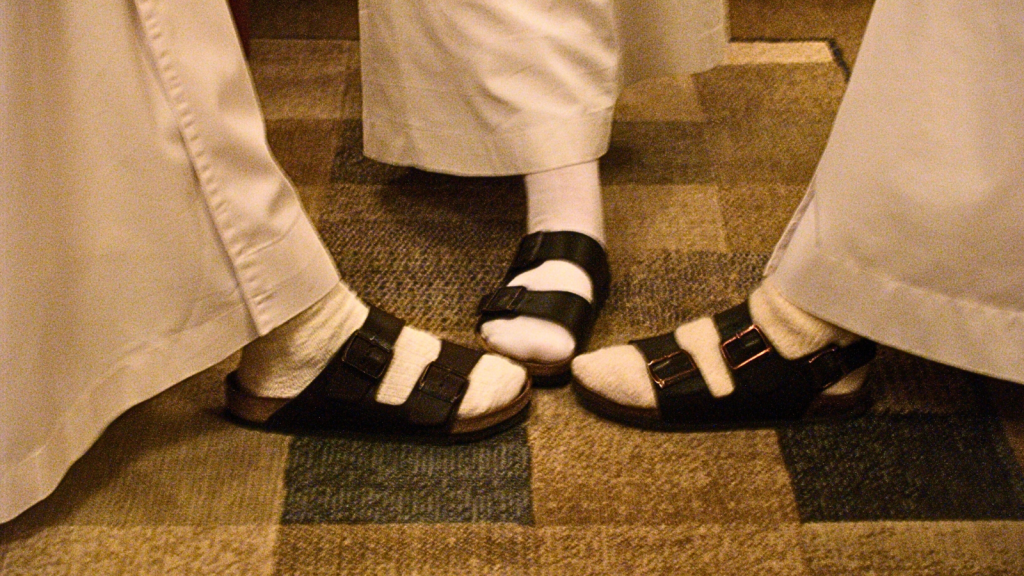

Just as there is an evil and bitter zeal that separates one from God and leads to hell, so too there is a good zeal that separates one from evil and leads to God and eternal life. Thus monks should practice this zeal with the warmest love: ‘Let then strive to be the first to honour one another.’ They should bear each other’s weakness of body and character with the utmost patience. They must compete with one another in obedience. No one should pursue what he considers advantageous to himself, but rather what benefits others. They must show selfless love to the brothers. Let then fear God out of love. They should love their abbot with sincere and humble charity. Let then prefer absolutely nothing to Christ, and may he lead us all together to everlasting life.
Ch 72, On the Good Zeal that Monks should have.
Ch 72 is considered to be the spiritual heart of the Rule of St Benedict. Some commentators suggest that this may have been written towards the end of Benedict’s life. We can hear the wisdom of someone who understands his brothers and what community life really entails. He offers a guide for the communal search for God and much of it concerns the ordering of prayer, work and relationships. These are solid, practical guidelines that are designed to ‘safeguard love’.
Throughout the Rule there is one central truth: Christ is really present in each member of the community. The love, respect and honour which we show to each other, we show to Christ. This love underpins all that happens in the monastery. We are all very different and yet we have all vowed to prefer nothing to Christ and trust that he will bring us ALTOGETHER to everlasting life.
Where in your own life are you called to prefer nothing to Christ?
Image: Turvey Abbey
These pictures were taken during a celebration of our Prioress’ feast day. This day ranks alongside Easter, Christmas etc in terms of solemnity and treats! Some of us might wear the same style of sandals, but we are all very different.








